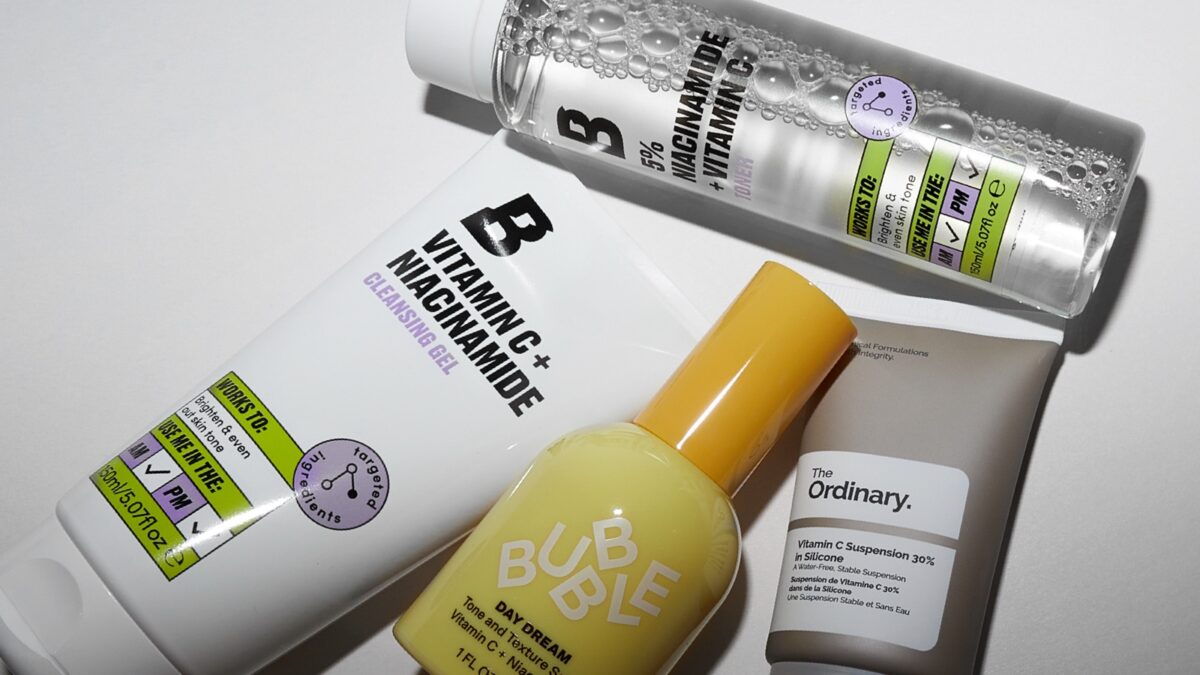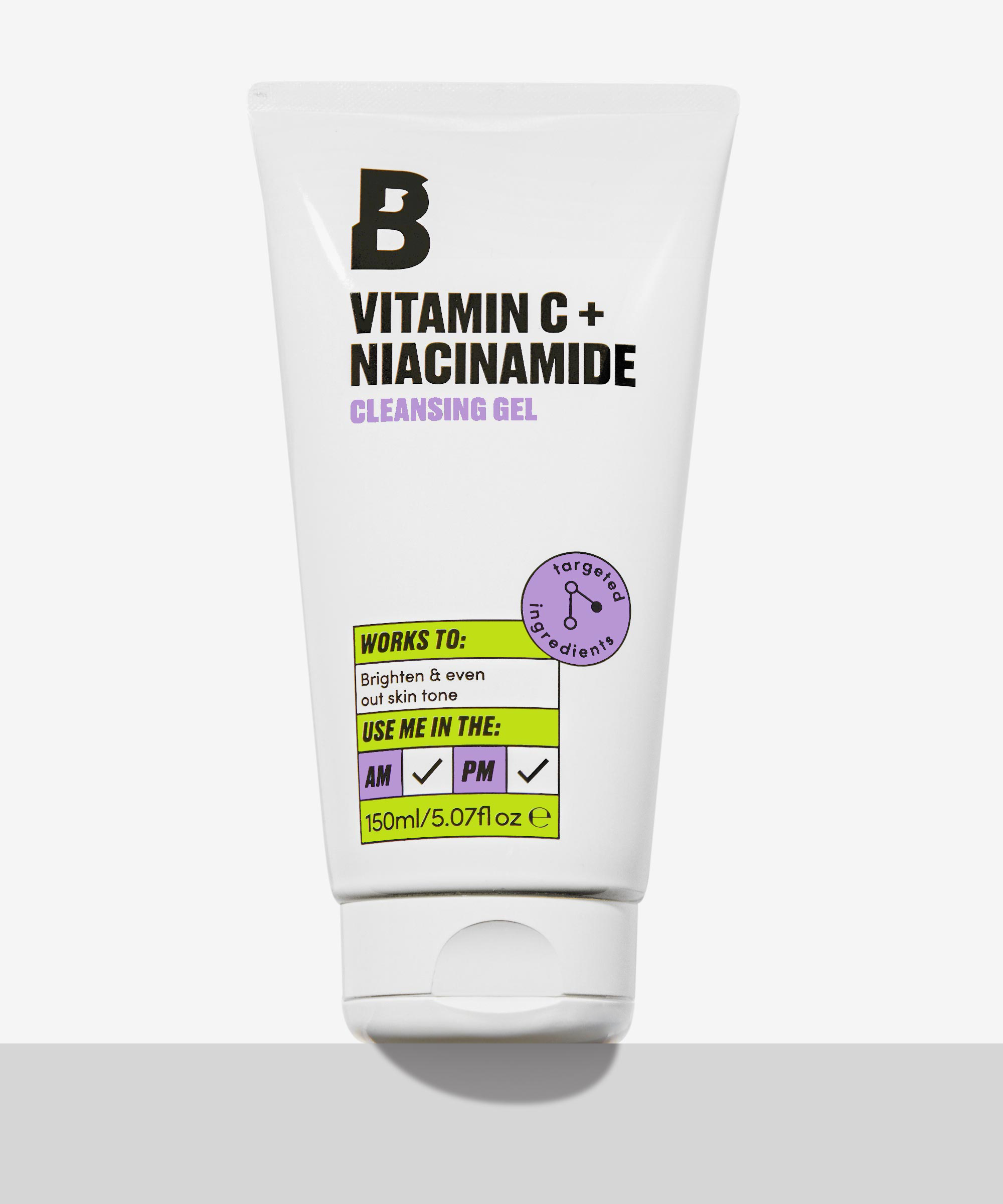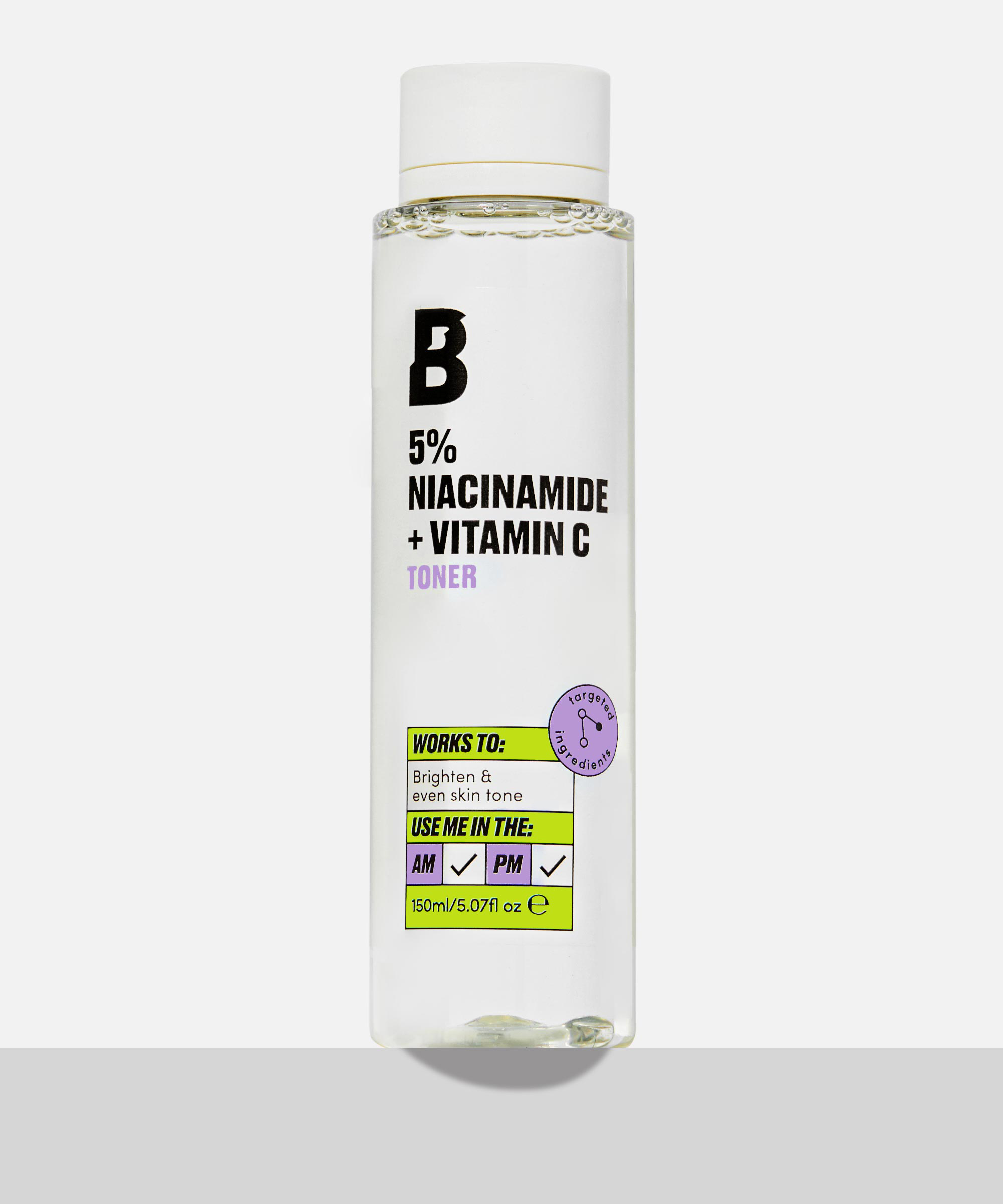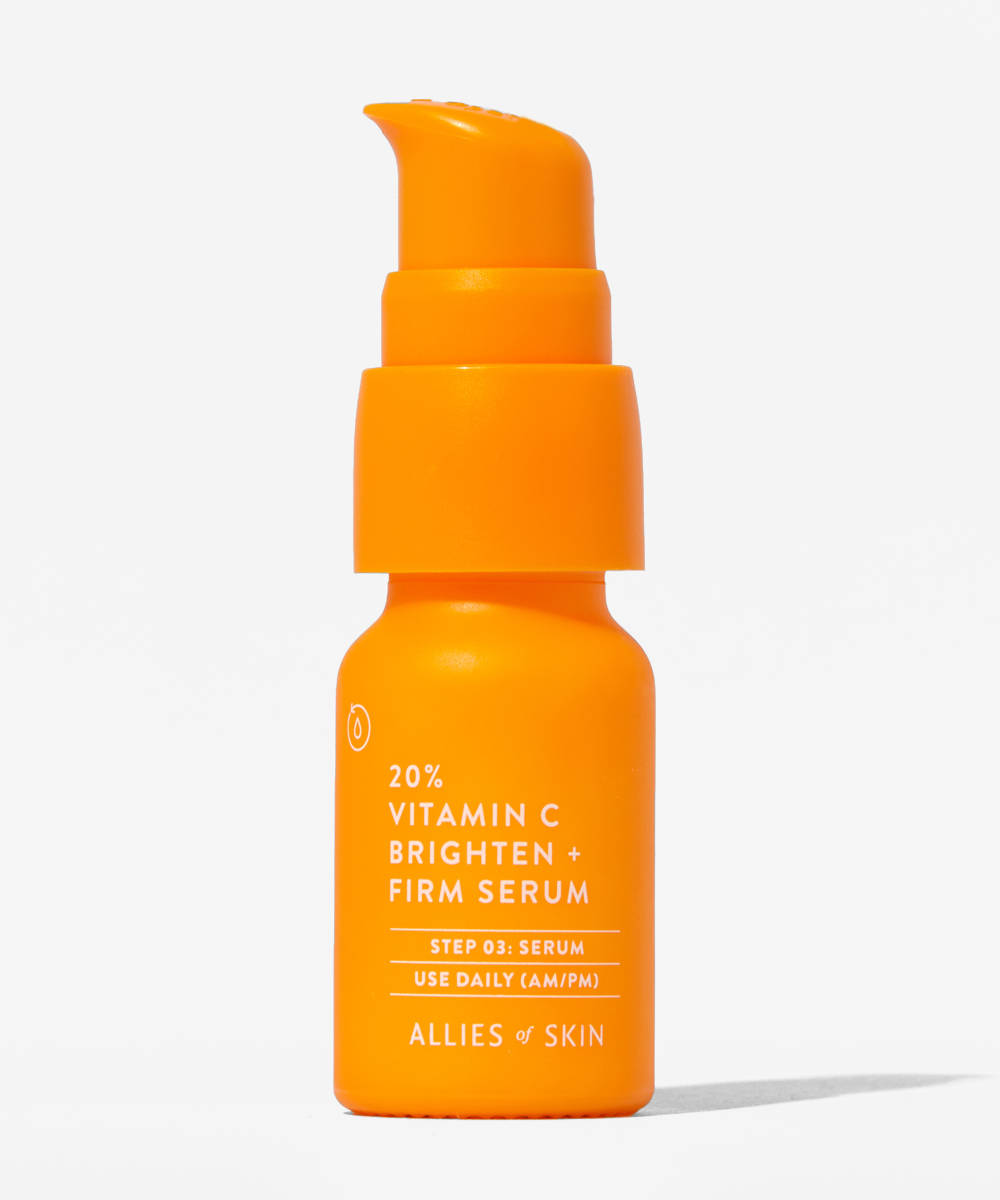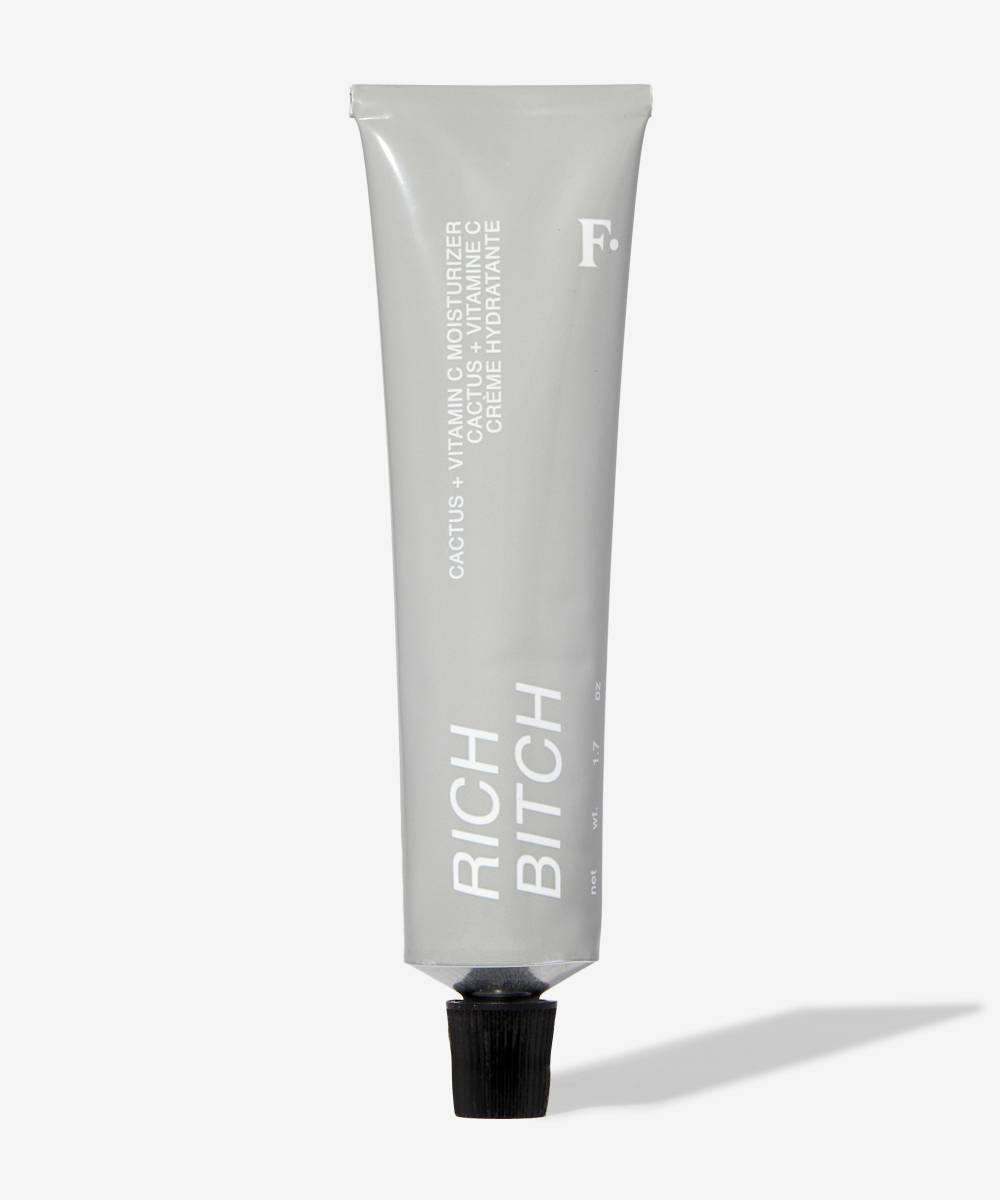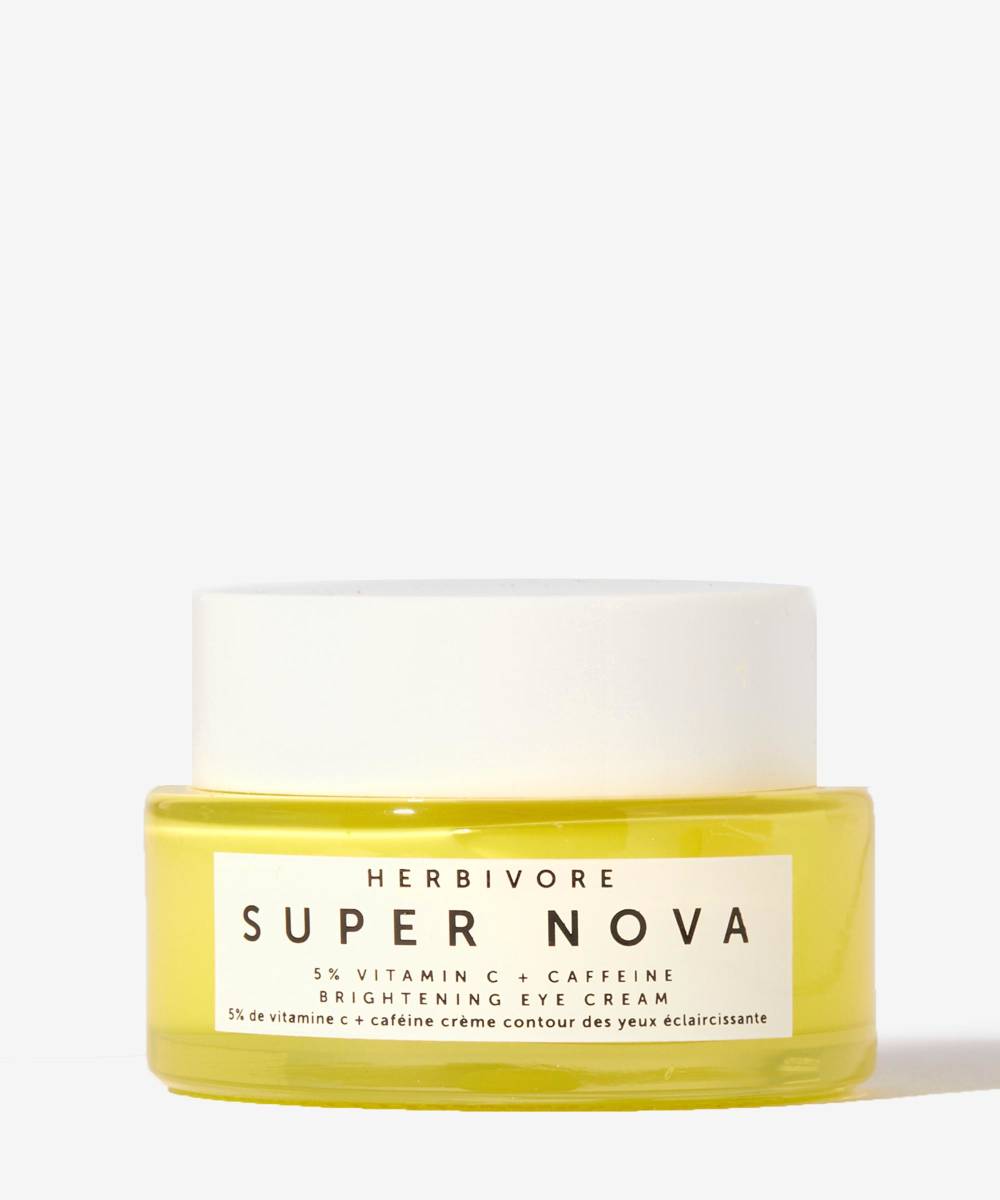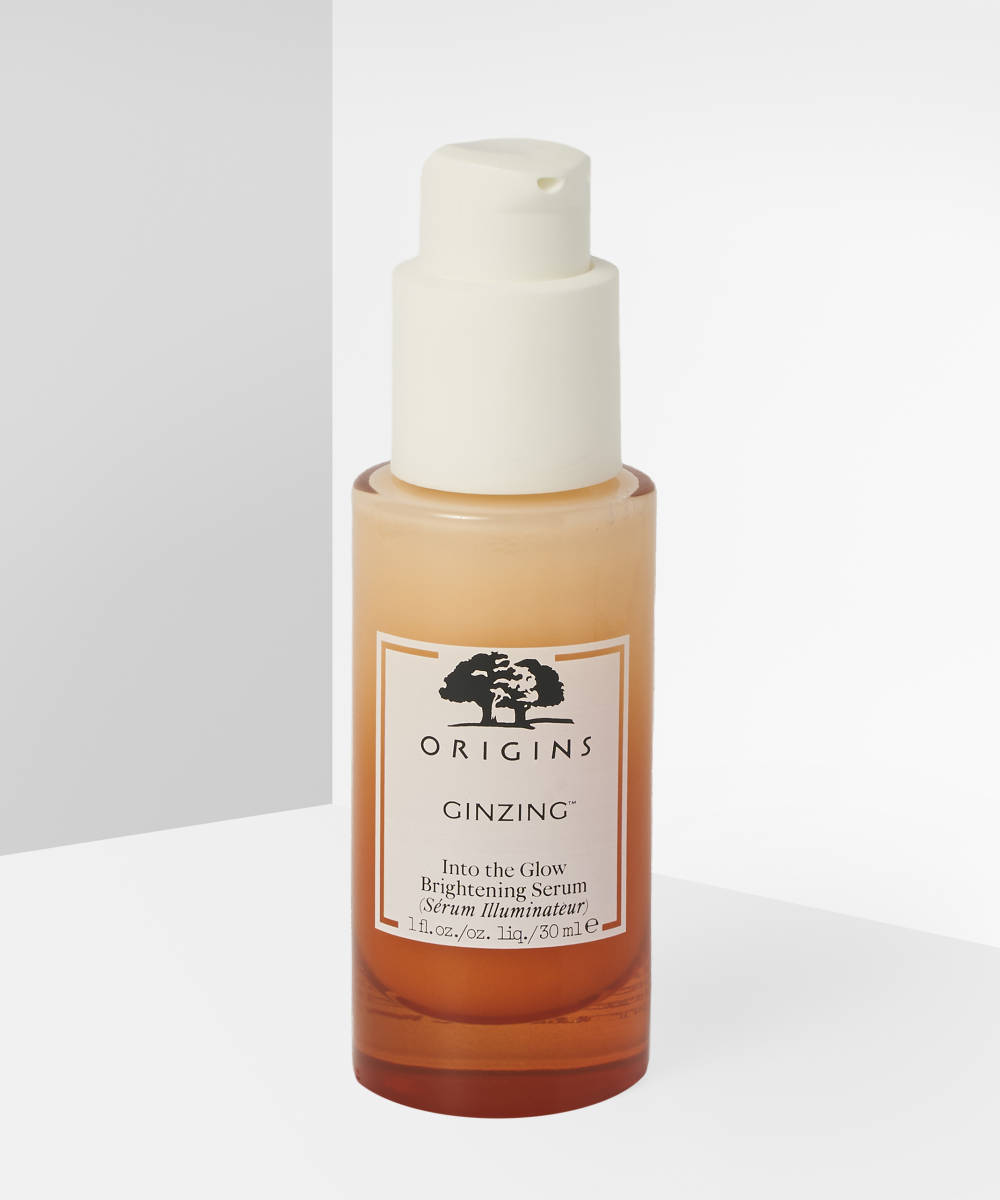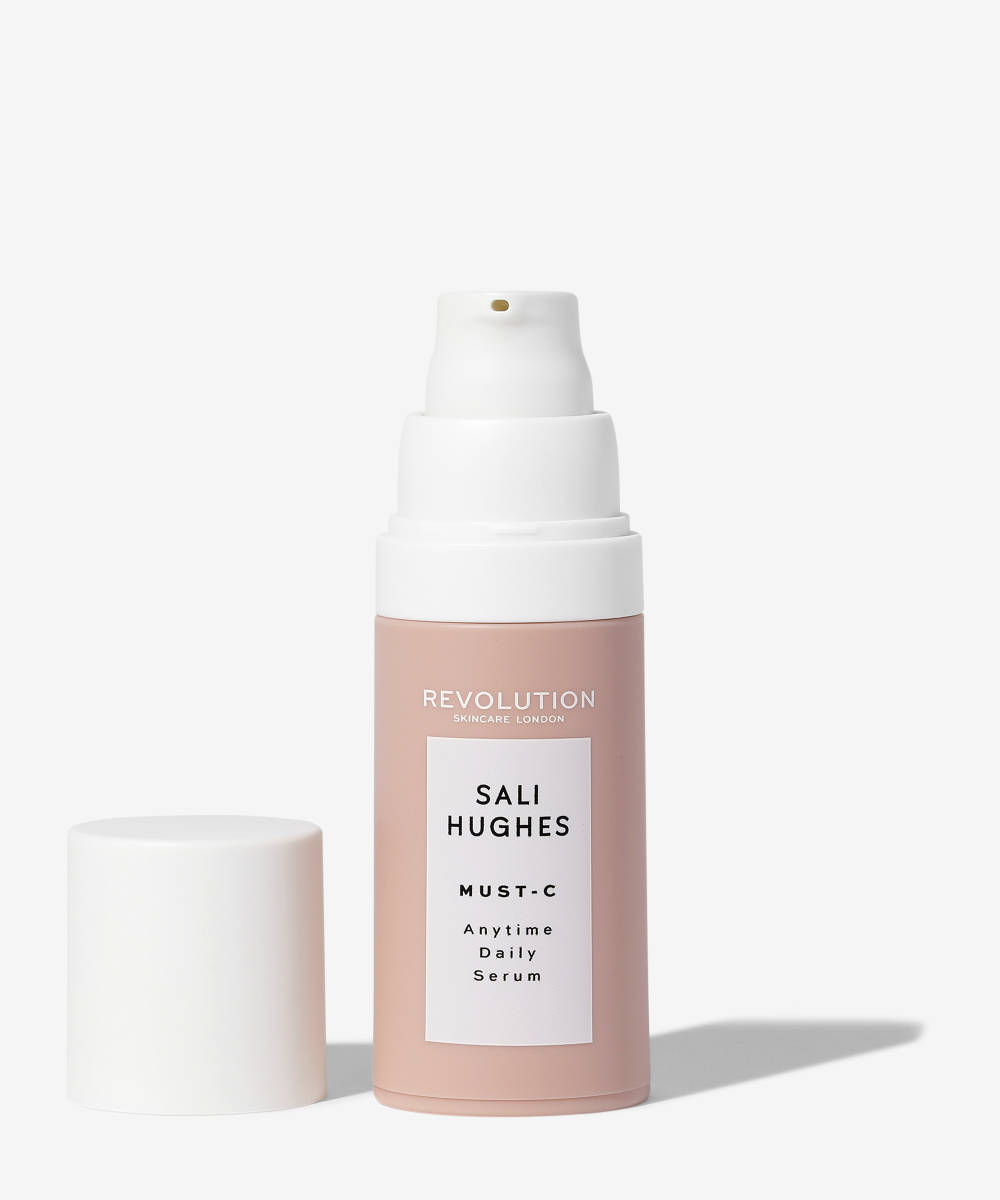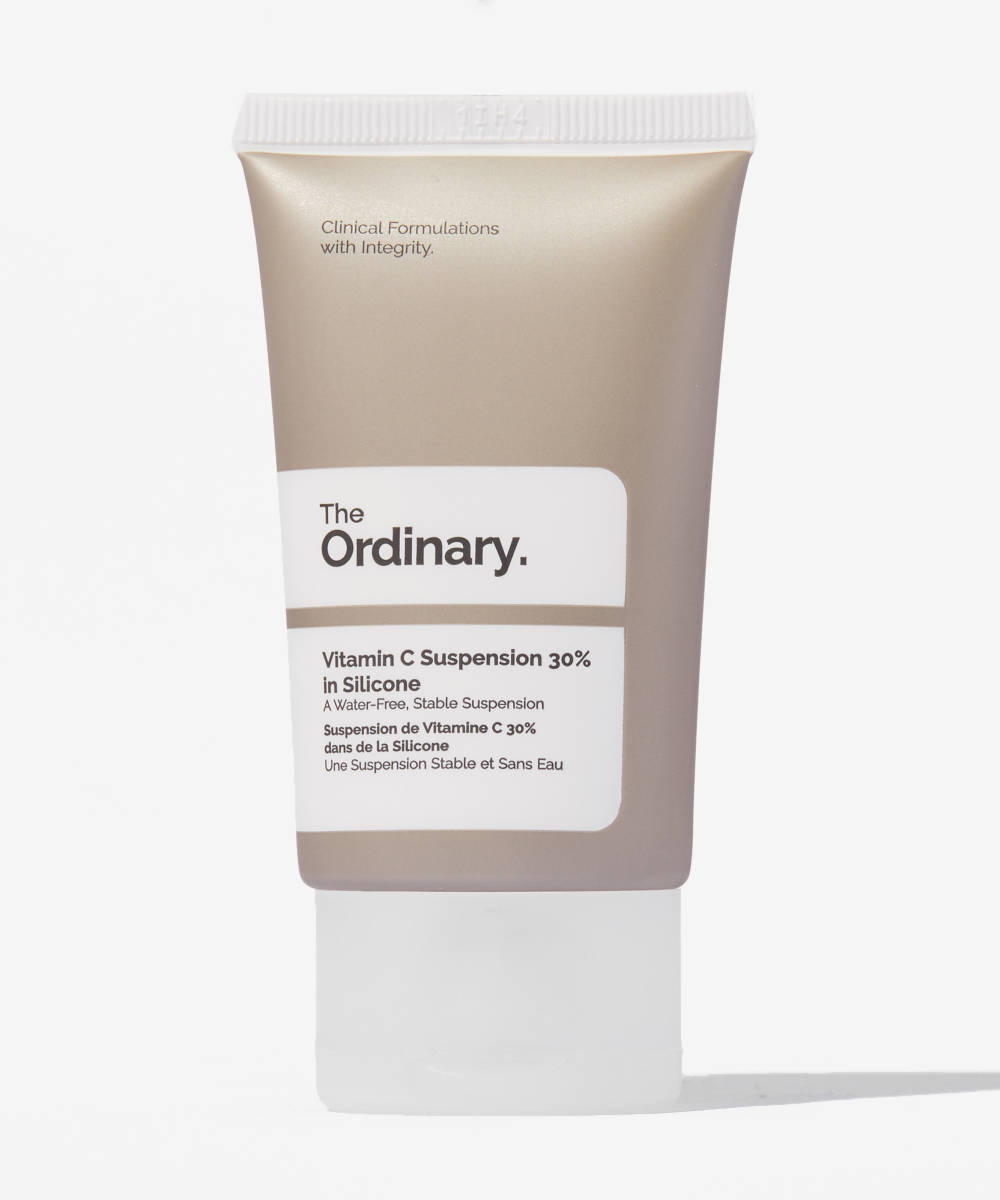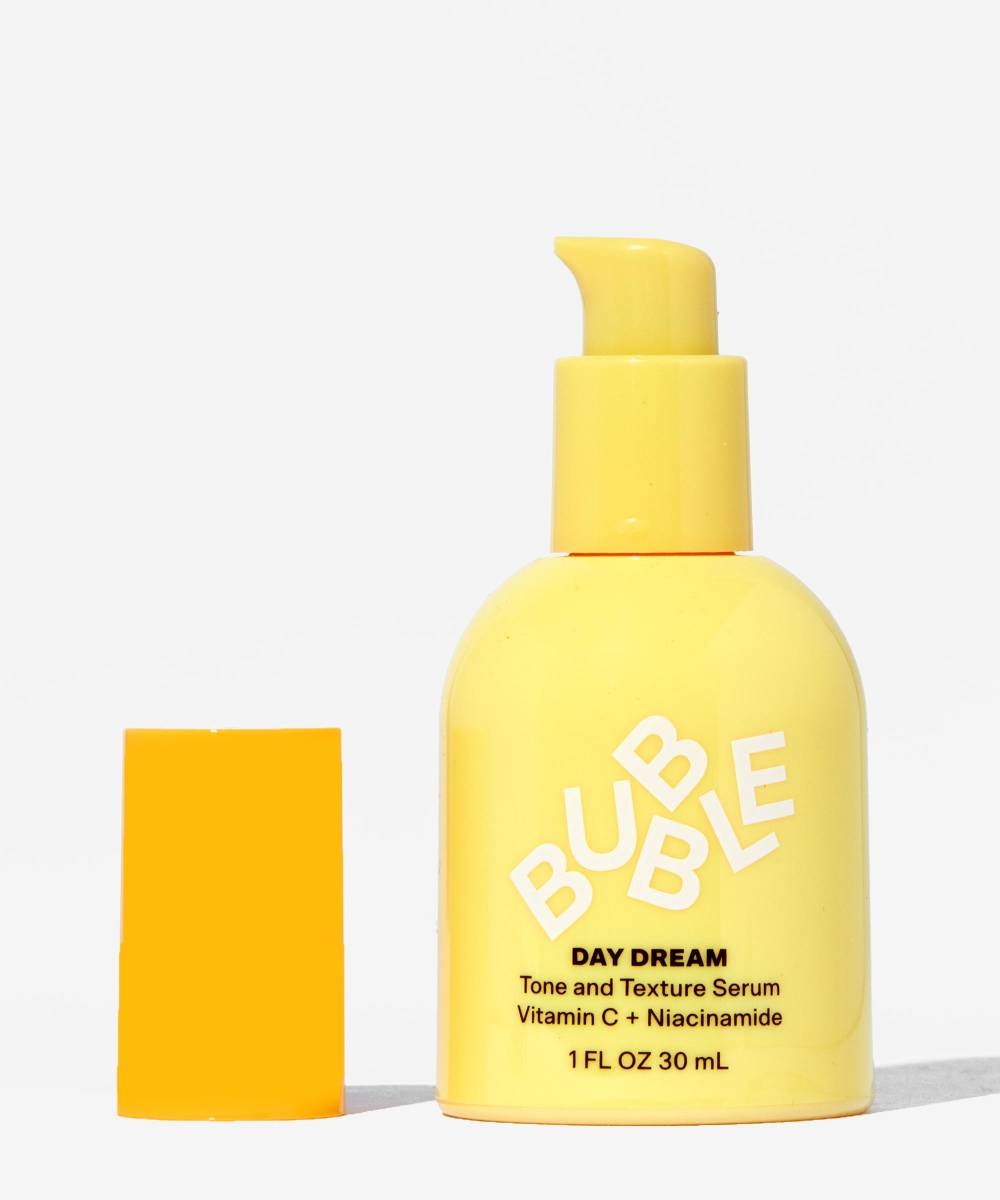Vitamin C is one of the most searched for and hyped skincare ingredients for good reason. Commonly found in brightening serums, eye creams, and anti-aging moisturisers, it’s a powerful antioxidant, which when added to your daily skincare routine, provides a full range of benefits. From brightening dull skin to targeting the effects of pollution and sun damage, fading pigmentation, targeting dark circles, and improving skin tone, vitamin C can benefit almost all skin types and concerns.
But how exactly does vitamin C work? And when do you use it? We’ve taken a deep dive into vitamin C to answer all of your most frequently asked questions about this buzzword ingredient. Scroll down for everything you need to know.
What is vitamin C?
Vitamin C is a water-soluble vitamin, which means it cannot be stored in the body, so must be added in. It’s particularly effective because it has the ability to penetrate deep into the layers of skin. There are many different types of vitamin C and the ingredient is available in many different strengths and concentrations – it’s sometimes referred to as ascorbic acid. Vitamin C is what’s known as an antioxidant, which means it has the ability to address the impact of environmental damage on skin.
How does vitamin C work?
When our skin is exposed to certain environmental aggressors like pollution and UV rays, it generates free radicals. These are harmful molecules which attack cells and cause damage. Most commonly they disrupt the skin’s ability to repair itself and speed up the appearance of skin aging by breaking down collagen. Antioxidants like vitamin C help by stabilising the free radicals to prevent cell damage, and restore health and balance to already damaged cells. Vitamin C also accelerates the production of collagen and elastin which are responsible for keeping skin firm and plump, so the ingredient can help prevent skin from appearing thin and papery. Another benefit of vitamin C is its ability to inhibit skin’s melanin production, which is what causes dark spots and hyperpigmentation.
What does vitamin C do for skin?
As well as smoothing and plumping fine lines and loose skin (by increasing collagen production), vitamin C is an ideal treatment for those who experience hyperpigmentation and dullness. It can visibly improve the appearance of brown spots caused by sun damage and the red marks left behind by spots. Overall, it helps skin to look glowier, brighter, and healthier. You may be able to spot a difference in one use, but a long-term improvement will take place with weeks of consistent use.
When should you use vitamin C?
To target the effects of UV damage and environmental aggressors, it’s recommended to use vitamin C in your morning routine – it’s the perfect partner to your SPF. It can also be used in the evening but must never be layered with retinoids or exfoliating acids. You’ll see best results by using vitamin C frequently and regularly, so you can use it every day.
Try these...
The ultimate pick if you like multitasking products. This gel cleanser not only leaves skin feeling clean and refreshed, but delivers instant brightening results, so you’re left with purged pores and skin that glows. Ideal for an illuminating morning boost.
A quick-fix treatment packed full of goodness, this glow-giving toner is affordable, effective, and effortless to use. It combines vitamin C with niacinamide, an active ingredient with benefits for oily and breakout prone skin – perfect for simultaneously targeting multiple skin concerns.
With 20% ethyl ascorbic acid (one of the most stablke forms of the ingredient), this is a really effective vitamin C serum, It’s great for targeting stubborn concerns like hyperpigmentation, fine lines, and wrinkles. What’s more, it’s suitable for (including sensitive) skin types.
If you don’t have the time for a serum step in your routine, then look for a moisturiser that incorporates vitamin C instead. That way, you can brighten and hydrate your skin in one go. This thick but lightweight cream absorbs quickly and leaves skin with an instant glow.
If you experience dark under-eye circles then look out for eye creams that contain vitamin C – over time, it can help to reduce their appearance. This particular blend combines vitamin C with turmeric and caffeine which help to depuff and soothe tired eyes.
This serum packs a major punch to stimulate collagen production and bring dull, tired skin back to life. The formula is fast-absorbing, non-greasy, and leaves a subtle hint of radiance behind – it layers beautifully under moisturiser and makeup.
This affordable vitamin C serum is one of the best we’ve used. it contains ascorbyl glucoside, a form of vitamin C which is incredible stable and which converts into pure vitamin C upon absorbing into skin. It gives skin an instant dewy sheen while also working to brighten and hydrate skin in the long term, too.
This bestseller from The Ordinary is a great option for those who have dry skin, since the ingredient is delivered via a nourishing cream formula that’s boosted with silicones – known for their abilities to support the skin barrier.
Specifically formulated to target scarring and dark spots, this serum combines vitamin C with a cocktail of other brightening ingredients, including alpha arbutin, niacinamide, and ceramides.
